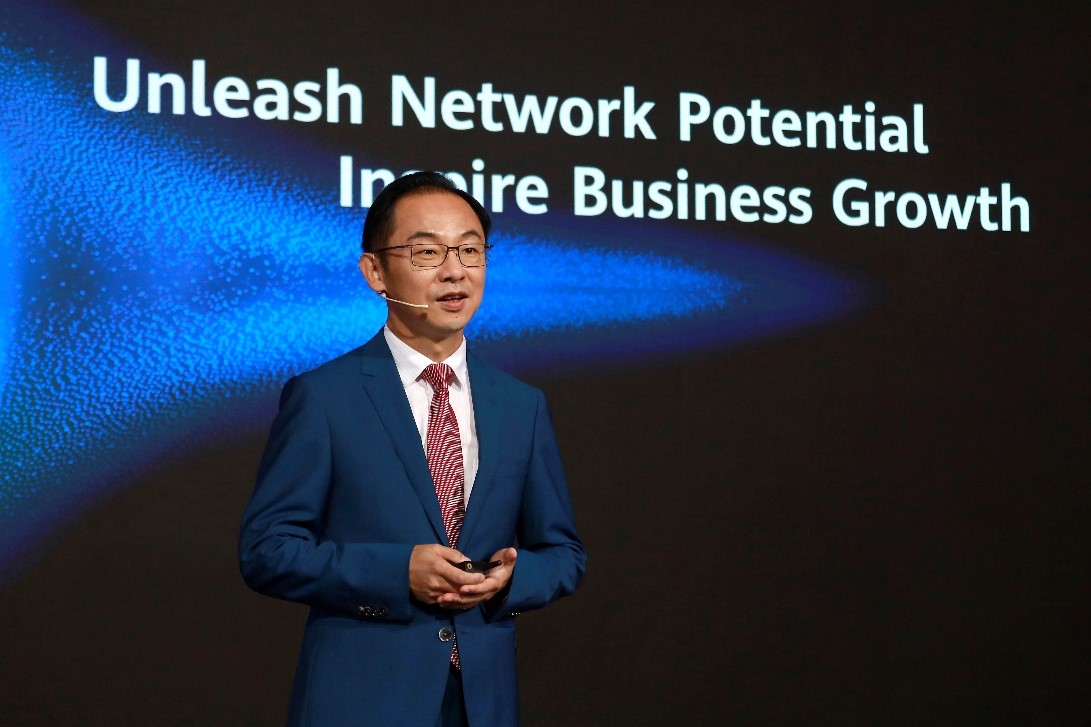A tech expert, Ryan Ding, has identified Business to Business (B2B) marketing as one of the four areas of network construction and business development to quickly unleash network potential and inspire business growth as the COVID-19 crisis continues globally.
Ding, Huawei’s Executive Director and President of the Carrier BG, said this while delivering a keynote speech at the Better World Summit 2020 on July 28, 2020 in Shenzhen, China.
- USA, China, Huawei and anti-globalisation sentiments
- How technology can aid the fight against COVID-19 – Huawei
He said carriers needed to also maximize the value of existing networks and focus on user experience and build the best 5G networks.
While noting that carriers needed to speed up 5G commercialization in B2B for more business opportunities, he said 5G was entering a new development phase, and the B2B market is key for carriers’ commercial success.
“Carriers need to choose the right industries and build new 5G capabilities targeting B2B.
“They also need to push for unified industry standards to accelerate 5G adoption at scale in B2B,” Ding added.

To succeed in B2B, Ding said choosing the right industries is crucial.
“Private lines have become a quick-win use case for 5G in B2B, with more than 15 carriers having 5G private line services.
“Carriers can consider three factors when deciding which industries to focus on: industry attractiveness, commercial viability, and technical viability.
“Huawei suggests that carriers should currently focus on mining, steel, ports, and oilfield industries when developing 5G in B2B.”
The Huawei’s top executive also said carriers needed to build 5G network planning, construction, maintenance, optimization, and operations capabilities for B2B.
“For example, they need to improve their network planning capabilities that target different production environments of industries, and provide products and solutions that meet industry requirements.
“In addition, they need to develop service and ecosystem enablement platforms, provide standardized products and services, and build viable business models,” he stressed.
More so, Ding is of the view that carriers needed to push for unified industry standards.
He said unified industry standards were the basis for large-scale 5G development in B2B.
“Cross-industry collaboration is well under way.
“Many industries like mining and steel have begun to communicate industry standards through such efforts as publishing industry white papers, establishing ecosystem alliances, and participating in standards discussion,” he stressed.
Carriers need to build future-oriented target networks as well, Ding added.
According to him, the telecoms industry needs to think hard about how their networks can be adapted to the ever-changing needs of individuals, families, and businesses as well as how to support the development of the digital economy.
“Huawei will continue to help carriers build future-oriented target networks to support their continued success.
About Huawei
Huawei is a leading global provider of information and communications technology (ICT) infrastructure and smart devices.
With integrated solutions across four key domains – telecom networks, IT, smart devices, and cloud services – it is committed to bringing digital to every person, home and organization for a fully connected, intelligent world.
Huawei’s end-to-end portfolio of products, solutions and services are both competitive and secure.
Through open collaboration with ecosystem partners, Huawei creates lasting value for customers, working to empower people, enrich home life, and inspire innovation in organizations of all shapes and sizes.
At Huawei, innovation focuses on customer needs.
The company invest heavily in basic research, concentrating on technological breakthroughs that drive the world forward.
It has 194,000 employees, and operate in more than 170 countries and regions.
Founded in 1987, Huawei is a private company fully owned by its employees.

 Join Daily Trust WhatsApp Community For Quick Access To News and Happenings Around You.
Join Daily Trust WhatsApp Community For Quick Access To News and Happenings Around You.


